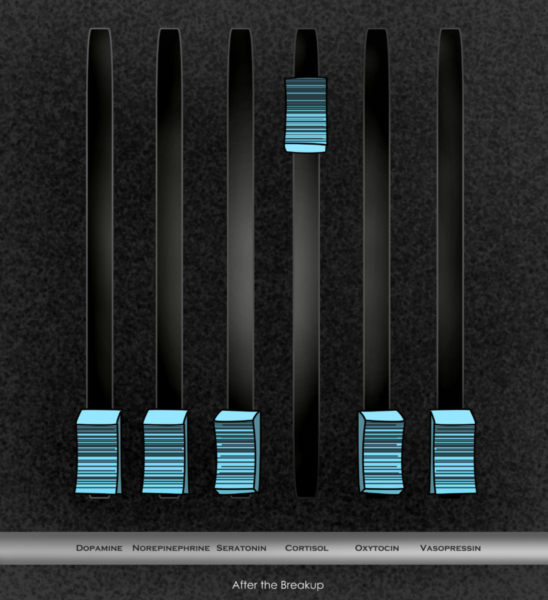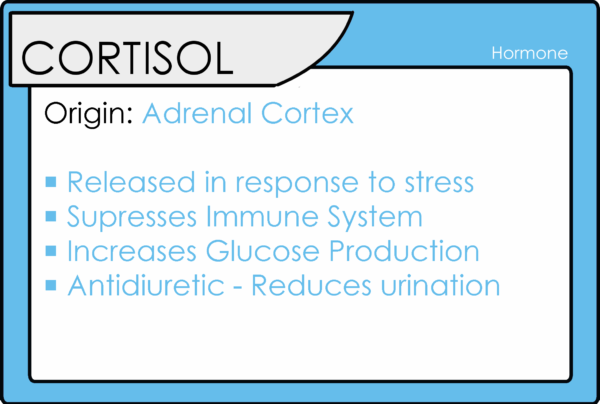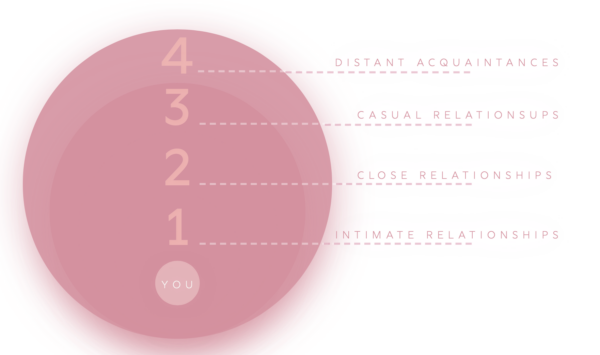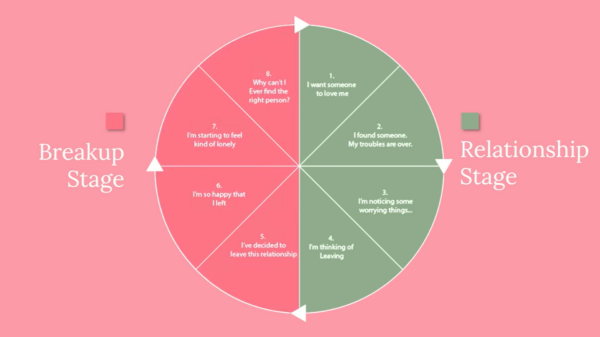In today’s post, I will look at depressed exes and answer how likely they will return.
Seeing someone we love in a highly depressed state can often cause us to wonder whether there’s any hope for reconciliation.
The truth is complicated, to say the least.
So, before we get to the nitty-gritty, I will discuss the following.
- The Statistics on Breakups and Depression
- Why Your Depressed Ex Pushed You Away
And once those fundamental questions are covered, I will look at the significant factors that can influence the likelihood of reconciliation.
- You’ve Gained Emotional Stability
- They’ve Surrounded Themselves with People Who Will Help Them
- You’ve Joined A Community (For You)
- Timing
- They Realize They Are More Unhappy Without You
Let’s dive in!

What Are Your Chances of Getting Your Ex Boyfriend Back?
Take the quizThe Statistics On Breakup And Depression
Statistics show that someone who goes through a breakup is more likely to develop depression.
Not exactly a shocker, but when you dig deeper and look at how widespread it is, it’s eye-opening.
A 2019 NCBI study listed the following significant findings in a report about breakups and depression:
- “Sudden loss” & “lack of positive affect” capture breakup effects: When people go through a breakup, they feel a strong sense of loss or sadness. They also found it hard to feel happy or enjoy things they used to like, which paved the way for depression.
- Association between components & depression is gender-dependent: Men and women might feel different levels of sadness after a breakup. In the NCBI study, women felt sadder than men did. This helped scientists understand how men and women handle painful situations differently. (Side Note: This aligns with what Chris Seiter (the founder of Ex Boyfriend Recovery) cited in one of his recent articles. He said that women feel the breakup more at the outset but seem to recover more fully long term.
But studies tend to be laborious to get through. That one above took me close to ten minutes just to understand what the heck it was saying.
To further illustrate that breakups can lead to depression, I also researched the common depressive symptoms experienced two weeks after a breakup on Healthline.
Here’s what it had to say.
- feeling consistently sad, empty, or hopeless throughout the majority of each day,
- losing interest in previously enjoyed activities,
- experiencing changes in appetite or weight,
- either an increase or decrease in sleep,
- changes in movement patterns, such as restlessness or sluggishness,
- feeling a persistent lack of energy,
- experiencing a sense of worthlessness,
- having difficulty concentrating or making decisions, and
- having thoughts of death or suicide.
One of the primary reasons why someone going through a breakup is more at risk for depression has to do with this,
That visual represents what is going on neurochemically in your body after a breakup.
Notice how cortisol spiked way up?
Cortisol is also known as the stress hormone and plenty of reputable research linking depression with elevated states of cortisol.
But if your ex is depressed, why would they push you away?
Why Did Your Depressed Ex Push You Away?
Dealing with a depressed ex can be a challenging experience, especially when they push you away. Well, here are the common reasons that we’ve been able to identify to potentially explain this behavior,
- Fear of being hurt
- They want to be alone
- They feel overwhelmed
- Feel like they aren’t good enough
- They worry you’ll leave them first
Fear of being hurt.
Depression can make people feel vulnerable and insecure, and they may worry that opening up to you will only lead to more pain and rejection. As a result, they distance themselves from you to protect themselves from further emotional harm.

What Are Your Chances of Getting Your Ex Boyfriend Back?
Take the quizThey feel they need to be alone- the typical avoidant ex.
Avoidants prefer solitude and independence and may find forming close and intimate relationships challenging.
In this video which was filmed by our founder,
Chris states that,
“Self-soothing is one of the avoidants’ main coping mechanisms.”
Remember, we’ve done a lot of research over the past two years on avoidant attachment styles,
We know that if the avoidant has a partner that loves being clingy and asks for constant reassurance, they tend to pull away and see that partner as a threat to invading their independence.
Thus, one of the ways that an avoidant copes with trauma is rooted in their attachment style.
They “self-soothe” by ignoring or pulling away. A depressed ex wanting space might just be returning to what they know best, being alone.
They feel overwhelmed.
Another likely outcome for someone who is depressed. Your ex may be unable to cope with even small amounts of stress. They may feel like they don’t have the energy or emotional capacity to be in a relationship, leading them to push you away to reduce their stress levels while at the same time protecting their well-being.
Feels like they aren’t good enough.
Depression can make people feel worthless and undeserving of love and affection. They may believe that you deserve better than them and that they are doing you a favor by ending the relationship.
This goes with the cliché words often muttered during breakups
“It’s not you. It’s me.”
Though what’s interesting is it seems Chris, and I disagree on this. He argues that people are inherently self-interested and, therefore, incapable of altruism.
Having an ex say they are breaking up with you because “they aren’t good enough” is a lie.
Overall, I take a more optimistic approach. I think, especially when you are dealing with an ex who is depressed, then they might authentically believe that they aren’t good enough.
They fear you will leave them and decide to leave you first.
Before I explain anything, watch this,
In that interview between Coach Tyler and Master Coach Chris, they argue that this is typical behavior among people with fearful-avoidant attachment styles.
Senior Coach Tyler said that fearful avoidants have both anxious and avoidant qualities, making them particularly challenging to diagnose.
In the interview, our founder, Chris Seiter, also mentioned that they have different tipping points that could trigger their ‘incredible need for independence,’ such as marriage or moving in together.
They tend to have a deep-seated fear of rejection and abandonment, so they may end relationships preemptively to avoid being hurt.

What Are Your Chances of Getting Your Ex Boyfriend Back?
Take the quizThe biggest challenge is how you would deal with them and encourage them to meet you halfway. Coach Tyler said,
“Give them space and not freak out.”
The Most Important Factors to Influence the Likelihood of a Reconciliation
In this section, I’d like to switch gears and look at what factors must be present for reconciliation to even have a chance of taking place with an ex who is depressed.
In all there are five,
- You’ve Gained Emotional Stability
- They’ve Surrounded Themselves with People Who Will Help Them
- You’ve Joined A Community (For You)
- Timing
- They Realize They Are More Unhappy Without You
Let’s dive in!
Factor #1: You’ve Gained Emotional Stability
When someone gains emotional strength after a breakup, they are more likely to approach the reconciliation process with a clear and level-headed mindset.
Emotional stability refers to an individual’s ability to manage emotions and maintain a sense of calm and control in their thoughts and behaviors.
But the million-dollar question is how the heck do you gain it?
The no-contact rule is the perfect foundational strategy because it runs the candle at both ends. It gives you time to get your sh*t together and provides your ex-time to do the same thing.
Not to mention it has all these other excellent benefits,
But that’s the tricky thing about the no-contact rule. Those other fantastic benefits aren’t the substance you should be focused on. Instead, all of your time during no contact shouldn’t be focused on your ex but instead on yourself.
The goal is to achieve emotional stability FOR YOU!
Consider for a moment that you do achieve it. You’ll be better equipped to communicate your needs and boundaries calmly and effectively, which can help facilitate a successful reconciliation.
But there’s more to it.
It’s about confidence. It’s about knowing you can survive without your ex in your life.
Everyone always asks us: “Why is it that exes come back when I’m over them.”
Well, this is why
They’ve Surrounded Themselves with People Who Will Help Them.
“Your personality and behavior tend to reflect the people you associate with; as the saying goes, ‘birds of a feather flock together.”
Who thought these words might come in handy for this?

What Are Your Chances of Getting Your Ex Boyfriend Back?
Take the quizLet’s look at Chris Seiter’s sphere of influence,
He argues that every person has an SOI (sphere of influence.) A collection of individuals they surround themselves with whose opinions matter deeply to them.
The closer to the middle of that graphic above you are, the more of an impact you have.
- Intimate Relationships
- Close Relationships
- Casual Relationships
- Distance Relationships
So, how does this influence the reconciliation process?
Let’s pretend that you are trying to reconcile with your ex-partner, but their sphere of influence strongly opposes the idea.
This will create a negative headwind, which you will have to overcome. Thus, it’s always important to remember that depressed exes SOI impacts their decision more than you think.
When I asked Chris’ opinion about how SOI affects reconciliation, here’s what he had to say,
“Basically, the main point we want to get across is that whom you surround yourself with is far more important than you realize.”
Join a Community (For You)
It’s not uncommon that breakups can cause you to struggle to cope with your emotions.
I proved that with my cortisol graphic and explanation above.
We’ve witnessed so many people struggle with their breakups in our community.
And I can’t tell you how often I’ll listen to Chris’ success story interviews only to hear someone talk about their battle buddies’ importance.
Fun fact; Battle buddies is a term used within our community where we pair members who have similar situations up so they can support each other throughout the entire breakup process.
So, to cope with your situation, it would be best to join a community with people who have experienced similar breakups and share their interests and values.
It doesn’t even have to be ours, but too many people are out there struggling with breakups alone when they don’t need to be.
Overall, this community may serve as your own person sphere of influence. As you engage more with the page or members, you may adopt the values and attitudes of the group, which can positively influence your personality and behavior.
For example, if the community values self-care and self-improvement, you may prioritize these aspects of your life more.
After all, having someone who understands your pain is better than going through it alone.
Timing
Timing plays a significant role in reconciliation’s success. Both partners should be in a stable emotional state and feel ready to re-enter the relationship.
This leads us to the essential question: when is the right time?
Chris’s message is simple:
“They won’t miss you until they feel there’s no chance of reuniting with you.”
And that’s backed up by our research on avoidants.
Only after you move on and get over them do they finally start to want to reconcile.
Here’s an example.
Suppose your ex has an avoidant attachment style. In that case, they may need more time and space to process their emotions before they are ready to consider returning. The reason is that avoidants love their SPACE which makes them feel comfortable and SAFE, so they are very protective of it.
If you reach out too soon, the avoidant partner may feel overwhelmed and withdraw further; however, if the other partner waits too long, the partner may have already moved on emotionally, making it difficult to reconcile.
In such a scenario, the timing of when the other partner reaches out to initiate a reconciliation is ESSENTIAL.
So, “Simply let them feel what they want to feel.” – Chris Seiter.
Thus, understanding the timing that works for both partners is crucial to the success of reconciliation.
The timing may involve waiting until the avoidant partner is ready to communicate, seeking a counselor’s or therapist’s advice, or waiting until a significant life event or change occurs, creating an opportunity for reconciliation.
Here’s a handy trick to figure out the right timing: When they start initiating or being more open to having a conversation, it’s time to slowly start re-building rapport.
They Realize They Are More Unhappy Without You
This is the most significant factor influencing your chances with your ex. But before that, let’s take a look at our famous relationship death wheel,
What’s interesting about the death wheel is that there are eight stages to it,
You have the relationship stages,
- I want someone to love me
- I found someone my problems are over
- Hey, I’m noticing some worrying things
- I think I need to leave the relationship
Then you have the breakup stages,
- I leave the relationships
- I’m so happy I left
- I’m starting to feel kind of lonely
- Why can’t I ever find the right person
It’s the eighth stage that I want to focus on today because that’s the stage where he feels your loss,
Your ex may have initially thought that breaking up was the best decision. Still, as they work through the eight stages, their unhappiness without you changes their perspective.
But the critical thing that most people miss is that their ex has to work through seven stages before they get to a point where the nostalgia kicks in.
And to tie this into one of our previous factors, this is typically when the “timing” is correct.
After your ex has gone through the crazy emotions and come out the other side.
Conclusion
In conclusion, statistics indicate that breakups can lead to depression, causing individuals to push their partners away for various reasons:
- Fear of being hurt: Overwhelmed by fear, they may try to remove its source from their lives.
- Feeling overwhelmed: Unaccustomed to intense emotions, they may avoid them, hurting their partner. This is common in those with avoidant attachment styles.
- Not feeling good enough: They may believe they cannot make their partner happy or satisfied.
Factors influencing reconciliation likelihood include:
- Emotional stability: This can provide clarity in the reconciliation process.
- Supportive network: Having positive influences can help shape your thoughts on second-chance relationships.
- Timing: Crucial when repairing a broken relationship; poor timing can lead to disaster.
- Personal growth: Joining communities for self-improvement helps build perspective on handling situations without becoming overwhelmed.
- Ex realizes unhappiness without you: Demonstrates your deep-rooted impact. Encourage avoidant partners to seek professional help to prevent relationship deterioration.
Remember Coach Tyler’s advice: Give a depressed ex space and avoid applying pressure for successful reconciliation.



